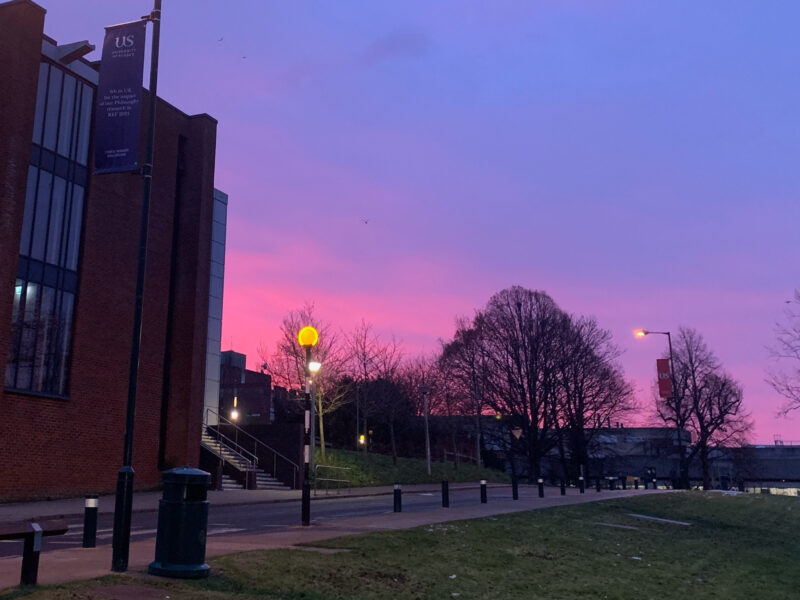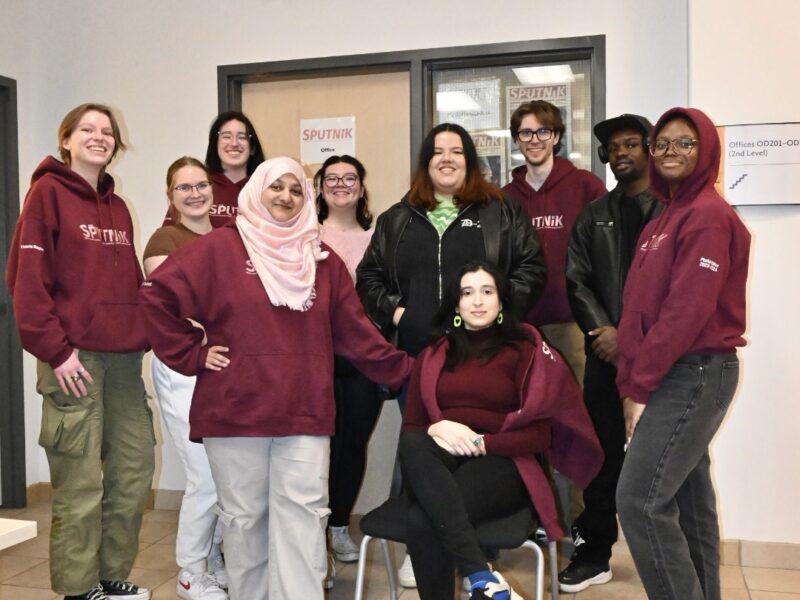I was standing outside of a classroom a few days ago and I overheard a story being shared about a crazy weekend. The punch line was that their friend did something really stupid, but instead of saying the word ‘stupid’, they exclaimed “Man, it was soo gay!”. Really? Because the last time I checked, doing something that could be classified as unintelligent has nothing to do with being attracted to someone of the same gender. I understand why they say this; people have been socialized into believing that since everyone says it, it automatically makes it okay.
I would like to raise the idea that our words, just like our actions, have consequences. But what could possibly be the consequence of using a gay slur as the punch line of a joke? Unfortunately, there are many. First of all, since the LGBTQ+ community is a vulnerable group due to the fact that they are constantly being discriminated against and don’t have equal rights in most places of the world, making a joke about them is extremely detrimental to the improvement of their status in society.Discrimination, although not as commonly seen in Canada, can be seen with the new Russian anti-propaganda laws related to “non-traditional sexual relations.”
Secondly, “gay” is not synonymous of “stupid”, but when you equivocate them, you are saying that you think being gay is stupid. And that’s a pretty horrid concept in 21st century Canada to voice, if you think about it, which most people obviously don’t because some people use this expression daily. Another problem that isn’t as obvious is when people use noninclusive language, such as gay slurs, it shows that they are too lazy to think of other words that could accurately describe the situation. Come on people, we are in university! We should all know how to use a thesaurus. I understand that some people don’t enjoy spending their Saturday afternoon looking in a thesaurus to learn new words, because this is not what I’m suggesting. However, most people do have data on their cell phones and all it takes is a quick thesaurus.com search to find other interesting, more accurate words. It would be awesome if these words don’t reference a group of people, or a person, negatively.
I like to think that we have a very inclusive, safe campus. With the groups on campus, such as MyRespect, promoting inclusive language, I think we are a very progressive student body. My first experience with this campus was coming to LEAP in August, and I was very pleased when my Skillbuilders explained the importance of inclusive language on campus. Some of my friends were slightly confused as to why they couldn’t use homophobic, racist, or sexist slurs, but they caught on after a while. Unfortunately, some others didn’t understand the importance and ignored the message. I like that we have members in our school community who are dedicated to making everyone feel respected and I think they outweigh those who choose to exclude people with their attitudes and words. However, those people are still out there, making our campus a less inclusive place, one comment at a time.
There are the obvious references that make people uncomfortable that can be classified as non-inclusive (“that’s so gay”,“that’s retarded”, racist, sexist, ableist, and any other “ist” comments). But something that I did not know before attending LEAP was saying “that’s so lame”, “I’m starving”, and “hey guys” can also be seen as non-inclusive. Think about it- lame is ableist and you’re basically saying that people who are disabled aren’t cool. Can you imagine having lived through ACTUALLY being starving and having someone use it every day without understanding how horrible it felt? And calling everyone “guys” insinuates that only the men are worthy of hearing your message. See how some innocent words can have a negative meaning that can exclude certain groups of people? And this is just the beginning of non-inclusive language. First, non-inclusive words or comments are used, then there are some jokes made about marginalized groups, this then turns into stereotypes, and that is how normalized “isms” start. Using the word “gay” as a punchline to a joke can turn into people believe that the LGBTQ+ population should be valued less than heterosexual people.
I’m not suggesting that you need to monitor everything you say, nor am I suggesting that someone can be a “perfect inclusive person”. I’m merely requesting, on behalf of everyone who would like their university to be a safe place, that you think before you say something that could make someone uncomfortable or feel excluded. The best thing you can do, the best thing anyone can do, is educate themselves and try to speak as inclusively as possible at all times. Consider this my plea, Laurier Brantford.



